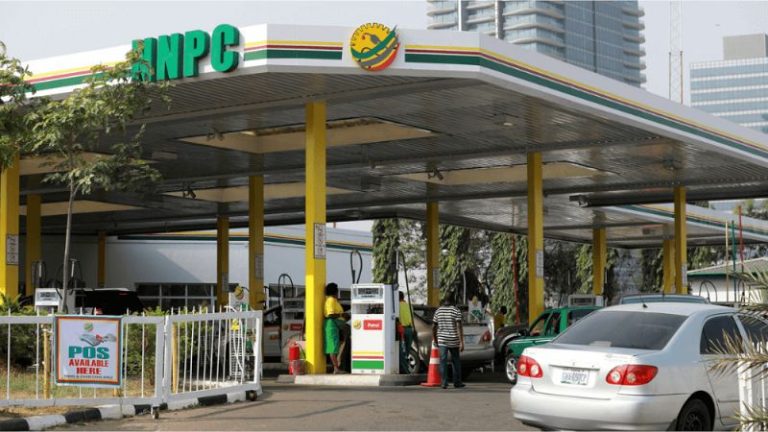Nigeria is a country immensely blessed with hydrocarbon reserves, yet many of its citizens can hardly afford petrol due to its high price. Even when some local refining was reluctantly undertaken, the price per liter of petrol skyrocketed, continuing to rise and forcing many people to sell their vehicles or leave them permanently at home.
Nigeria is supposed to be the giant of Africa, but this status continues to elude it despite its enormous resources. Widespread corruption among its leaders has ensured that Nigeria remains a potential giant rather than an actual one.
A documentary titled Petrol, Power, and the People, which aired in a video clip, claims that Nigerians should not have to pay for petrol, as profits from other crude oil products would be sufficient to cover refining costs and still yield profits for the government or companies involved. However, corruption has become a way of life for many of the nation’s leaders, leaving government-owned refineries and other oil-related facilities in disrepair. Whenever funds are allocated for their repair, the money is immediately embezzled without any action taken.
Take, for instance, Nigeria’s four government refineries: two in Port Harcourt, one in Warri, and another in Kaduna. They have been non-functional for years under the guise of needing repairs. Funds are routinely allocated for these repairs, yet are stolen as soon as they’re provided, rendering the Nigerian National Petroleum Company (NNPC) Limited primarily a distributor of locally refined petroleum from the Dangote Refinery.
According to the documentary, Nigeria’s Bonny Light crude oil is one of the world’s most sought-after due to its low sulfur content, high API gravity, and balanced product yield. The documentary’s presenter noted: “From one barrel of crude oil, we get 47.3 liters of gasoline, 36 liters of diesel, 13.2 liters of jet fuel or kerosene, 22.7 liters of fuel oil, and 9.5 liters of petrochemicals. Other products include asphalt and lubricants.”
He went on to say, “You could give petrol for free and still make a profit. Even if a refinery gave petrol free, it would cover its costs and make a profit from other products. Diesel, jet fuel, and petrochemicals have such high margins that they could support the entire operation like Victor Osimhen carrying Nigeria’s Super Eagles to victory.”
The presenter’s implication was clear: all the talk about high prices and subsidies may be a massive scam. He added, “All we’re asking for is the truth and some compassion. We are not only swimming in crude oil but also drowning in crude lies.”
Since the discovery and beginning of oil exploration in Nigeria, the country has remained a mono-economy dependent on crude exports for revenue, failing to diversify its economy. Other countries like Saudi Arabia, the UAE, and Malaysia have used similar resources to develop and elevate their people, while Nigeria lags behind.
The ongoing allegations around the Malta refinery are fresh in our minds, and Nigerians are still waiting for a satisfactory explanation regarding its ownership. This small island, home to refineries allegedly linked to influential Nigerians, raises questions about transparency. Oando Oil and Gas Company, which recently acquired Nigeria Agip Oil Company (NAOC), is rumored to belong to the Nigerian President, allegedly passing control from his nephew, Adewale Tinubu.
Nigeria is a rich country, unfortunately ruled by selfish and greedy leaders who govern not for God or country, but for themselves. The fact that most of these leaders are excessively wealthy suggests corruption has enriched them. Recently, a list of Nigeria’s fifty wealthiest politicians circulated online, showing most of them were politicians, including former and current governors. Many entered office as poor as church mice but emerged as multi-millionaires. This suggests they amassed wealth illegally from public resources.
Petroleum has become unaffordable for many Nigerians, with a liter now exceeding N1,100, compared to N548 when the current administration took office on May 29, 2023. Like electricity, which has also seen a price hike under President Tinubu’s administration, petrol has become a luxury accessible only to government vehicles, those of National Assembly members, and high-ranking politicians.
It is astonishing how those in government and politics amass trillions of naira. They build massive mansions, look after their immediate families and children, and lavishly reward praise-singers and false clerics, who often mislead the gullible by claiming all would be forgiven if they build mosques or feed the needy during their lifetimes.
A friend once said Nigerians have “entered a one-chance vehicle,” while another added that the people are suffering from “TINUBUFLATION.” Nonetheless, God is pure and does not accept anything impure. One must answer to Him for their actions, relationships, and life conduct.
May God strengthen the good and compassionate individuals (philanthropists) who feed the countless needy across Nigeria. Their efforts are increasingly necessary due to the rampant poverty in the country, with many going to bed hungry because of the government’s unfavourable economic policies.
May He ease our affairs and the nation’s and grant us leaders who fear Him and dread the day of judgment, for no one, especially those who have deliberately wronged others, will find a hiding place.
Labaran wrote from Katsina.


